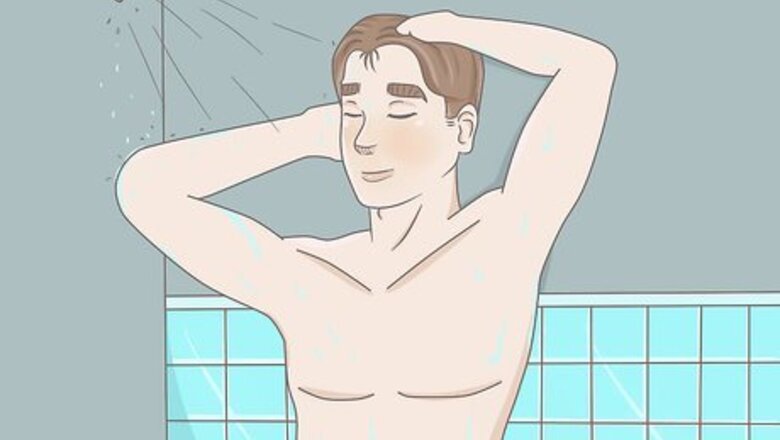
views
Showering and Washing Your Body
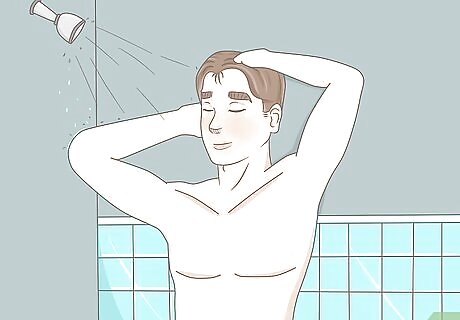
Use the showers at a shelter when you find yourself staying at one. Most shelters do have shower facilities for their residents. Whether you’re staying somewhere for a single night or for a longer period of time, take advantage of that shower every day if possible. Some facilities have specific times when you can shower, so make sure to check out the rules so you don’t miss your opportunity.Tip: Check if you can use the showers at a shelter even if you’re not staying there. Some shelters will let you access them even if you’re not staying the night, while others restrict their use to just people who stay at the shelter.
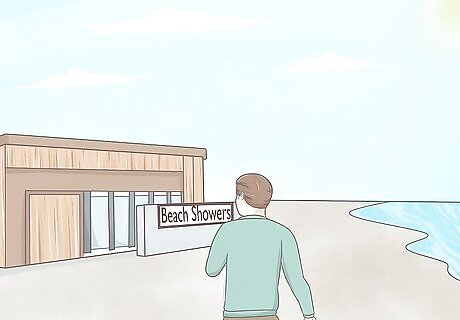
Visit the bathrooms at beaches and use the showers available there. If you live in an area where there are public beaches, there’s a good chance you can access showers there. These are usually public showers, so it’s a good idea to keep your clothes on or wear a swimsuit if you have one. After showering, go to a bathroom stall to change into dry clothes. After changing into dry clothes, you could lay out your wet clothes to dry if the weather is nice. If not, try to keep them in a plastic bag until you can dry them so they don’t get the rest of your belongings wet.
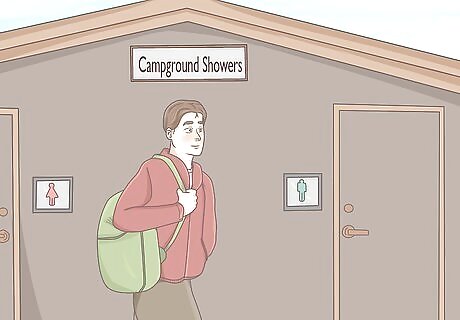
Take advantage of public showers at campgrounds, parks, and rest areas. Depending on where you live, you may be able to shower regularly at a state park or local campground. Rest areas that cater to long-haul truckers are also a great option, though you may have to pay a small fee to access their showers. Try to use the facilities early in the morning or later in the evening for the most privacy.
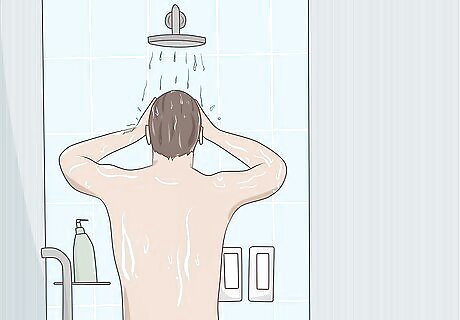
Purchase a gym membership so you can use their shower facilities. Depending on your financial situation and access to transportation, this may or may not work for you. If it does, take advantage of the showers to clean up as often as possible. If possible, choose a 24-hour gym so you can shower late at night and have some privacy. Some gyms allow you to pay month-by-month while others require you to sign a contract. Depending on the gym, you may have to have a bank account for them to pull out your monthly fee. Some YMCAs will let you shower for free or offer free shower passes to people who are experiencing homelessness.
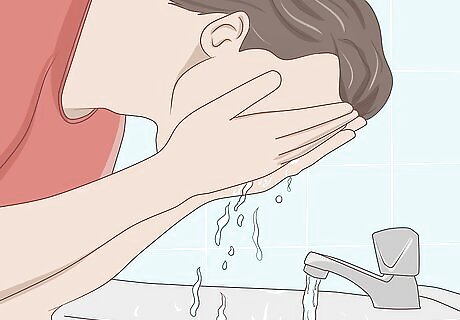
Wash up in public bathrooms with water and wet wipes. If you can’t access an actual shower, using public restrooms is a good alternative. You won’t get as clean, but you’ll be able to freshen up a little on a daily basis. Gas stations, fast food restaurants, big box stores, and libraries are pretty safe places to try and use their restrooms. Avoid going into upscale restaurants, office buildings, hotel lobbies, banks, or schools. If you do use public restrooms, try to find ones that are single-person. It’ll be much more comfortable for you if there isn’t a chance of someone walking in on you while you’re washing up. If you do choose this option, make sure to dry up any water you may splash on the floor, out of courtesy for any patrons who may come after you. If the floor is excessively wet and there are no paper towels, see an employee before you leave. You do not need to admit that it was you who made the mess, simply that the floor is wet.
Maintaining General Hygiene

Brush your teeth every day at public restrooms or with bottled water. Taking care of your dental health is a good way to prevent cavities or gum disease, and it’ll also help you feel a little more confident and clean on a daily basis. If you can, keep a toothbrush and small container of toothpaste with your belongings. When you use the restroom, take a moment to brush your teeth at least once a day. If you don’t have the chance to use a restroom with running water during the day, use bottled water to wet your toothbrush and clean your teeth that way. Finding Help While Homeless: If you need shelter or resources and aren’t sure where to look, check out your community’s Continuum of Care (CoC) program. Many areas also offer a 2-1-1 hotline that you can call to find help getting food, health care, shelter, and other resources. For more information, check out https://endhomelessness.org/how-to-get-help-experiencing-homelssness/.
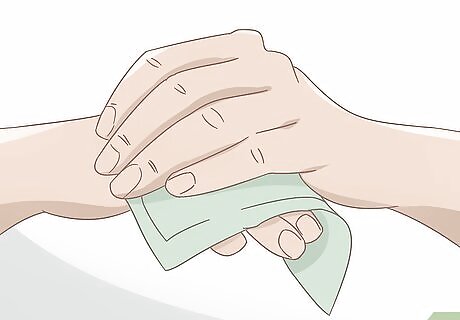
Keep your hands as clean as possible with wet wipes or sanitizer. This can be really difficult depending on where you’re spending most of your time, but keeping your hands clean will do a lot at helping prevent illness. Use public restrooms and wash your hands as often as possible, and try to keep either wet wipes or hand sanitizer in your bag. When you can, make it a priority to wash your hands before eating.
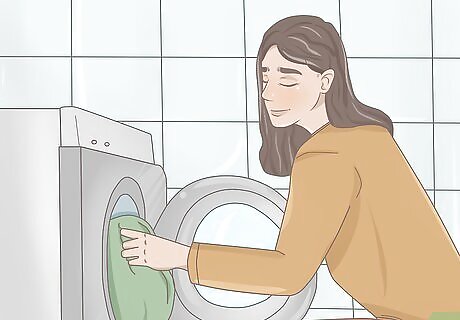
Wash your clothes when possible at shelters or laundromats. If you have a few dollars, you can run a load of laundry at a local laundromat. Some shelters also offer laundry services. No matter where you choose to wash your clothes, try to stick close by so you can keep an eye on your belongings. Using a laundromat can also give you somewhere to stay for a few hours, which can be really helpful during the colder months.

Get supplies like deodorant and soap from shelters or the dollar store. Part of staying clean is having access to basic hygiene products, which can be difficult when you’re dealing with homelessness. Many local shelters and churches offer free supplies to people who can’t afford to buy them. Check out what’s available in your area, or if you have a few dollars, consider buying a few things at a dollar store when you have the chance. Asking other people where you can get free supplies is a great way to learn what’s available. Others may know of different programs or times of year that certain places run charity drives.
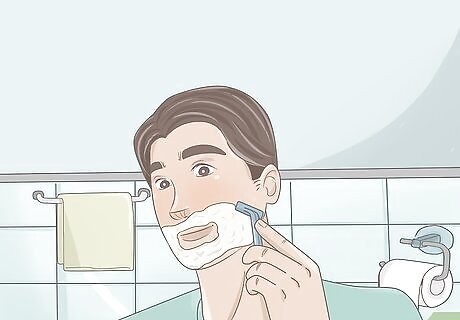
Keep your face as clean-shaven as possible if you’re trying to work. Having a clean-shaven face can also help you blend in when using public facilities. Take advantage of mirrors and sinks at shelters, public bathrooms, and churches to shave when you get the chance. If you have to, you can also use a small cosmetic mirror, razor, and bottle of water to shave while you’re outdoors. You can buy a razor and shaving cream at dollar stores, or you may be able to get them for free from different shelters or charities.
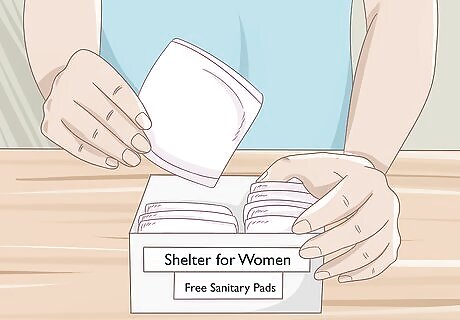
Do your best to maintain your hygiene while on your period. It can be really hard to gain access to pads or tampons while dealing with homelessness, especially if you don’t have the funds to go into a store and buy products for yourself. Many shelters and programs are aware of this problem and offer free tampons, pads, and wipes. If you can’t get pads or tampons, try using folded up toilet paper and changing it as often as possible. Some people use rags or socks and dispose of them once they’ve been used. The important thing is to try to change out the used material as frequently as you can to help prevent infections.












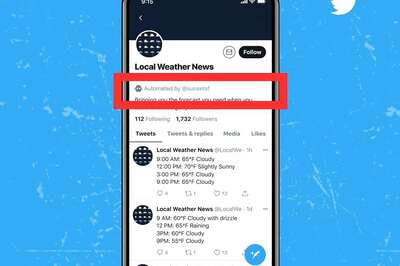





Comments
0 comment